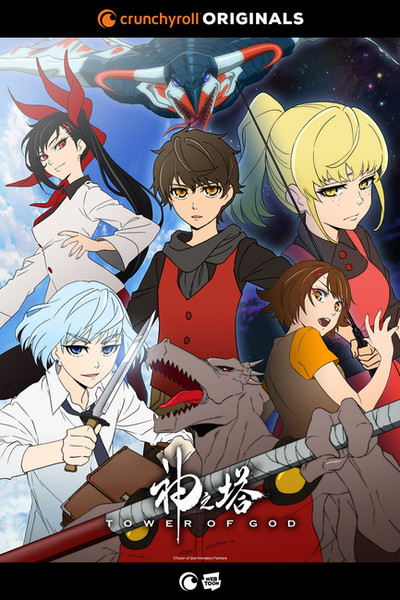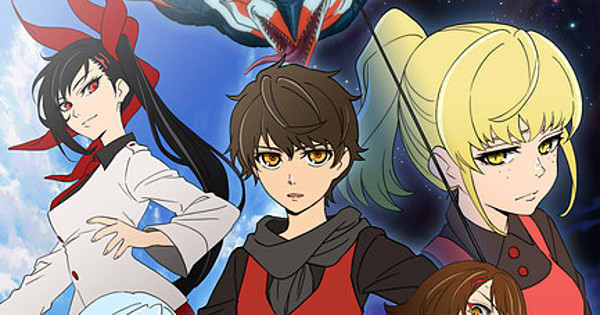Curated From www.animenewsnetwork.com Check Them Out For More Content.

Voice actor Laura Post spoke out about perceived inequalities in Crunchyroll‘s contracts for voice work. In a Twitter thread posted on June 2, Post wrote that a new Tower of God mobile game will not feature reprisals from the anime’s English cast, stating the actors were blocked from auditioning due to interference by Crunchyroll.
The streaming service co-produced the 2020 anime series as part of its “Crunchyroll Original” programming in partnership with Naver Webtoon.
According to Post, the game developer “approached a studio to begin recording the English localization [and] CR went directly to the client and told them they ‘owned the voice prints’ of the original cast.” Post wrote that Crunchyroll doesn’t own the voice prints. Anime News Network reached out to Crunchyroll about this claim but did not receive a response by press time.
“They went on to say that the videogame client could legally not use ANY of the cast in the game in *any* capacity. Not even as new characters or different characters than we originally played. We could not even *audition* for new or different characters. We were blacklisted,” Post wrote on Twitter. “What CR said is completely, 100%, untrue. Not only did I personally review my contracts to be sure that there was no such clause…In addition, I also had MULTIPLE LAWYERS look over the contract, and they agreed. There is nothing in there to stop us from being part of the project, at the very least as new or different characters.”
A voice print in the entertainment medium refers to the audio recording of all of a performer’s sessions, or in this case, everything created for the dub. The term is also used to refer to the specific cadence and pitch of a voice, but according to Thordsen Law Offices’ Sean Thordsen, it would not include the style of voice the performer created for the character as a whole unless the character’s voice was recognizable and iconic. One instance involved Scientologist and voice actor Nancy Cartwright performing her Bart Simpson voice for robocall messages promoting the Church of Scientology in 2009.
Post shared part of her contract with Anime News Network that lays out Crunchyroll‘s terms regarding the copyright ownership of her work. Thordsen stated that the language in the shared portion of the contract “is to declare that the copyright of the voice work and hence the voice prints belong to the initial party (Crunchyroll in this case) and thus only Crunchyroll may use those voice prints which includes Crunchyroll‘s ability to license those voice prints out to a third party such as a game developer.” The ability to license out the voice prints would be subject to other terms of the contract.
However, according to Thordsen, while the shared contract clause “limits who owns the results of the work, it does not prohibit an actor from reprising their role in any other medium.” Post did not share the entirety of her contract with Anime News Network. Thordsen told Anime News Network that if there are restrictions regarding role reprisals, it would be in another area of the contract.
Thordsen told ANN that these types of clauses are standard for the entertainment medium.
“Without them, the studio can be prohibited from exhibiting the work, as an actor can claim that the results of the work (i.e. their performance) is their own copyright and could otherwise demand extra payments, license their voice recordings out to other parties, or try to obtain an injunction and keep the work from being exhibited at all,” Thordsen said.
Based on SIU‘s webcomic, Tower of God follows Bam, a boy seeking to ascend the Tower and reunite with Rachel. A strange creature named Headon tells him that he will have to pass tests to prove his worth. Aided by Princess Yuri of Jahad and her companion Evan, Bam gains the magic sword Black March and is able to move on to the second floor.
Post starred as Hwaryu and the voice of the sword, Black March. A second anime season is currently in the works.
Post did not mention the developer or name of the upcoming Tower of God game. South Korean mobile game developer Netmarble (The Seven Deadly Sins: Origin, Seven Knights 2, The King of Fighters Arena) opened pre-registration for the Tower of God: New World collectible card game RPG earlier this month. Anime News Network reached out to Netmarble to confirm the information shared by Post but did not receive a response by press time.
Post suggested Crunchyroll‘s motivation is because the game’s dub is union. Unionization discussions among anime voice acting talent are ongoing, first gaining traction during the pandemic and after the Funimation and Crunchyroll merger. Anime voice actor pay rates remain low, with a notable example being Jujutsu Kaisen 0. According to Michael Schwalbe, English voice actors were likely paid just $150 to $600 in total for their performance. The anime film took the number two spot in the U.S. box office in its opening weekend.
Union discussions heated up last year as strides to go remote and introduce new talent were walked back in favor of focusing on in-person recording with Texas-based talent. Notably, Texas is a right-to-work state. State laws curtailing unions make organizing actors who demand a contract much more difficult. The tension heightened when Crunchyroll recast Kyle McCarley as protagonist Shigeo “Mob” Kageyama in the final season of Mob Psycho 100. This prompted the use of the #JustAMeeting
hashtag on social media after McCarley explained he had set terms with the streaming company to appear in the series: negotiate a potential contract on future productions with SAG-AFTRA.
Crunchyroll told gaming news outlet Kotaku that the choice was made to record the simuldub for Mob Psycho 100 III at the company’s Dallas production studio, and in order to “accomplish this seamlessly per our production and casting guidelines, we will need to recast some roles.”
In September, McCarley said he received a phone call from Crunchyroll‘s Justin Cook, and was told the company declined his terms to meet.
“I don’t know why they are so firmly anti-union that they won’t even agree to having a conversation about it. I felt like it was a pretty reasonable request, but you’d have to ask them why they appear to disagree,” McCarley told Kotaku.

